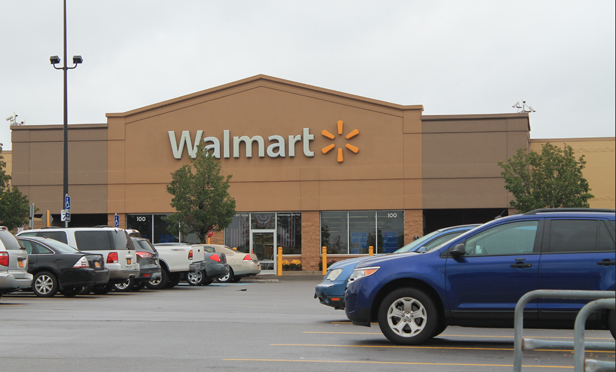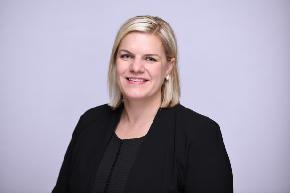 Taub: “Buffalo today is dramatically different than it was in its heyday and different from when we were buying assets in the late 1990s and early 2000s.” Pictured here is a Walmart at the Thruway Plaza.
Taub: “Buffalo today is dramatically different than it was in its heyday and different from when we were buying assets in the late 1990s and early 2000s.” Pictured here is a Walmart at the Thruway Plaza.
TARRYTOWN, NY—Buffalo, NY’s economic drivers have totally transformed themselves from what they were in the ’70s, ’80s and ’90s, making this part of New York State much more forward-thinking, DLC president Daniel Taub tells GlobeSt.com. The company, which when it was founded was focused on the Tri-State area, has expanded outside of its backyard and sees the benefits of owning necessity retail in the upstate New York market. We spoke exclusively with Taub about the firm’s presence in the New York State retail real estate market and other markets the firm is eyeing.
GlobeSt.com: Tell us about your company’s presence in the New York State retail real estate market.
Taub: We are a New York-based company. We started outside of New York City, and when the business was founded we were focused on the Tri-State area in our backyard. As we continued to grow within our backyard, we slowly started to identify other areas of opportunity, which led us to the Washington, DC, area and then the Chicago MSA, and then we started acquiring down in the southeast.
We’ve always been focused on our backyard, the northeast, but it’s consistently been a more challenging market in which to be active. We’re not a ground-up developer, so we look for existing retail that we can add value to, mostly in Fairfield, CT; Westchester, Putnam and Duchess counties; and Northern New York. We came full circle where there were asset and market opportunities. In particular, in mid-2014, we were able to identify and work on our first large transaction that really took us to western upstate New York, where we bought a 14-shopping-center portfolio with nine assets in and around the Buffalo MSA.
Buffalo today is dramatically different than it was in its heyday and different from when we were buying assets in the late 1990s and early 2000s. The market has transformed itself in terms of economy and opportunities for retail real estate. We thought it was not getting the attention of sophisticated landlords and retailers who had kind of forgotten about that part of New York. However, there are so many great things about its economy which is fueled by jobs and income levels. It’s what you might think of as upstate New York. This market didn’t see a lot of huge gyrations like other markets that were very hot and exploded loudly when the market crashed.
Our opportunity came full circle, and at the end of 2014, we closed on the first large transaction that really increased our presence. We were happily surprised with seeing our investment thesis come to fruition. Not only were our existing tenants doing well from sales perspective, but we were continuing to attract retailers to our property.
Fast forward and another opportunity arose that rounded out and enhanced our upstate presence not only in the Buffalo MSA, but also in areas from Rochester to Albany to Ithaca. We had this experience under our belt, and the fundamental underlying quality of the real estate in the markets where we were buying were well positioned and well tenanted, but we still had opportunities to enhance their value. We’re seeing not massive growth or spikes in numbers in terms of demographics, but a nice, solid, stable trajectory and foundation that will allow us to enhance and create more stability in the asset over the next five years.
GlobeSt.com: What especially interests you about that market?
Taub: What you’re seeing is that Buffalo, from an economy standpoint, has totally transformed itself from the economic drivers in the ’70s, ’80s and ’90s. What’s driving investment there are jobs and income. The investments in medical, education and energy supported by New York State are geared more toward what’s happening there now and what will happen in the future. Investment dollars are being actively invested now, and the microeconomy of the Buffalo MSA is benefitting. But it’s not grabbing headlines, which is kind of nice because it’s getting the benefits from those investments in terms of jobs and income and spurring housing levels. This is giving people buying power to maintain a reasonable level of buying versus living paycheck to paycheck. We’re going from a place where Buffalo had gone from a lack of jobs to something much better. We’ve been in Ithaca, a college town, and have been investing in that market for some time—not necessarily by being right next to a university, but by being in smaller-sized markets with students, staff and faculty from those institutions. These are good jobs and demographics for our type of properties, which focus on value-anchored or grocery retail. We’re catering to the middle of the bell curve, so a market like Ithaca is a great example. You have Cornell, but you also have other education there to supplement it. When was the last time you heard of a university closing? They don’t close. The market might be smaller, and the demographics might not be institutional quality, but it’s very good for our type of product, which is more necessity- and value-driven like a fitness gym or a Chuck E. Cheese versus a destination restaurant. In these types of markets, the New York State government, in particular, has done a good job of providing incentives to come and invest there, much like in Buffalo, Rochester, Albany and other parts of the state. It’s benefitting us, and it’s helping to create jobs that are catering to the middle developer.
GlobeSt.com: What other markets is your firm eyeing?
Taub: We’re opportunistic and are looking within where our portfolio is now. Mississippi and everything east of the Mississippi is where we’re going to be looking—the Midwest, Northeast, Southeast and New England. We would do more in Texas if we could find the opportunity. We’ve got to go where the market affords us opportunities. There is a lot of land and markets we’re not in east of the Mississippi, a lot of places we could go. We look for where we think there are economic and real estate opportunities, and we don’t necessarily need to be headline making. Take a market like Charlotte, NC, which is attracting a huge influx of business focused on the Millennials. We’re not going to ignore it; we would love to be in the Charlotte MSA. Wherever there are population or demographic trends that are viable, we would love to go to. Austin, for example, is great, but the pricing is a lot more expensive.
GlobeSt.com: What else should our readers know about your firm?
Taub: We’re not a real estate company per se. We’re in the business of investing, owning and operating retail real estate, but we’re into people first and foremost. We’re interested in developing a platform that achieves the highest level of efficiency; we just happen to be applying it to retail real estate. That’s the way we approach it. We’re very much in the world of retail real estate, either on the construction, acquisitions, leasing or legal side, but first we are a human-capital-intensive firm applying our skills to retail real estate.

















 Copyright © 2024 ALM Global, LLC. All Rights Reserved.
Copyright © 2024 ALM Global, LLC. All Rights Reserved.